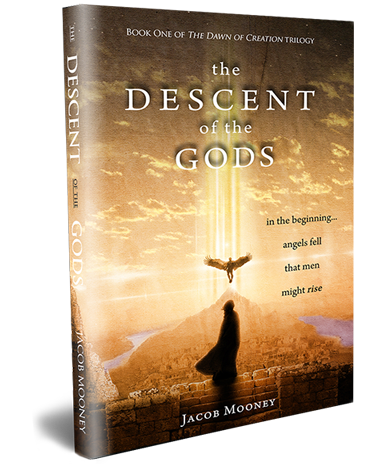Eusebius of Caesarea, a prominent figure in early Christian history, left behind a rich legacy of scholarly works that continue to shape our understanding of biblical texts.
As a Greek historian, exegete, and Christian polemicist, Eusebius made significant contributions to the study of the Bible and the development of Christian thought.
In this article, we will delve into Eusebius’ insights on the enigmatic passage of Genesis 6:1-4, particularly concerning the Nephilim, the sons of God, and their intermarriages with human women.
Angels, Giants, and the Interplay of Mythology

Eusebius’ interpretation of Genesis 6:1-4 reveals his understanding that angels played a pivotal role in the intermarriages between heavenly beings and mortal women.
Drawing on influences from 2nd temple literature like the Book of Enoch and Greek mythology, Eusebius sought to demonstrate that these narratives all stemmed from the same original story found in Genesis.
In Praeparatio Evangelica (Preparation for the Gospel), he wrote about the parallels he was between the stories of giants and titans in Greek mythology and the biblical accounts of the Nephilim, suggesting a common thread of thought.
“And this argument is still further confirmed by Plutarch, in the passage where he says that the mythical narratives told as concerning gods are certain tales about daemons, and the deeds of Giants and Titans celebrated in song among the Greeks are also stories about daemons, intended to suggest a new phase of thought. Of this kind then perhaps were the statements in the Sacred Scripture concerning the giants before the Mood[flood], and those concerning their progenitors, of whom it is said, ‘And when the angels of God saw the daughters of men that they were fair, they took unto them wives of all that they chose,’ and of these were born ‘the giants the men of renown which were of old.’
For one might say that these daemons are those giants, and that their spirits have been deified by the subsequent generations of men, and that their battles, and their quarrels among themselves, and their wars are the subjects of these legends that are told as of gods. Plutarch indeed, in the discourse which he composed On Isis and the gods of the Egyptians, speaks as follows word for word:
‘THEY therefore do better who think that the incidents recorded concerning Typhon and Osiris and Isis refer to sufferings neither of gods nor of men, but of certain mighty daemons… For various degrees of virtue and vice are found in daemons just as in men.’”
Praeparatio Evangelica (Preparation for the Gospel)
Eusebius references Plutarch, who suggests that the mythical tales of gods are actually stories about daemons. Eusebius takes this idea further, proposing that these daemons could be identified with the giants mentioned in the Bible.
He posits that subsequent generations deified the spirits of these giants, leading to the legends and battles associated with gods in various mythologies. This perspective highlights Eusebius’ belief that pagan mythologies had their origins in the biblical narrative of the antediluvian earth and the disobedience of angels with human women.
What now?
Eusebius’ insights offer valuable historical context and shed light on the diverse interpretations of Genesis 6:1-4. However, the passage remains a subject of ongoing scholarly inquiry, both in ancient and modern times. It is important to approach this topic with careful discernment, as there is a wealth of disinformation and sensationalized content circulating online.
At “Chasing the Giants,” we are committed to providing a dependable resource for those seeking a deeper understanding of the nephilim in Genesis. Our website aims to compile ancient sources and quality research on the topic, bridging the gap between historical texts and contemporary inquiries.
By offering a searchable database and insightful analysis, we strive to guide individuals in their quest for answers, ultimately pointing to the truth found in Jesus and the ability of the Bible to illuminate the imperfections of the world.






